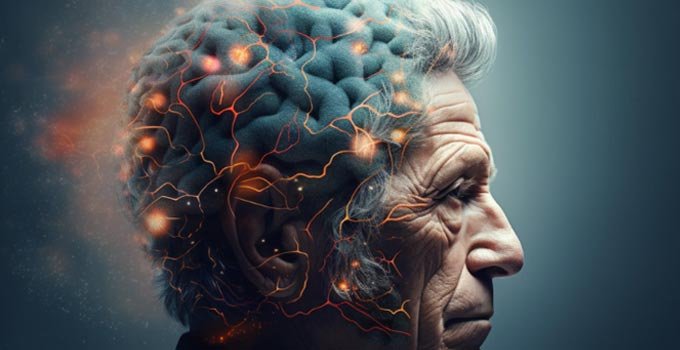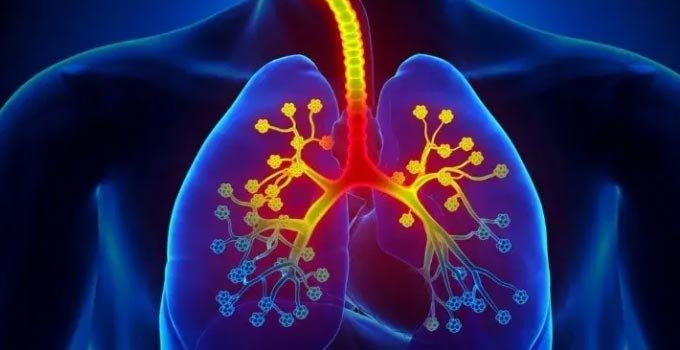Debunking Myths About Schizophrenia: Facts and Insights

Table of Contents
- Understanding Schizophrenia: Definition and Symptoms
- The Causes of Schizophrenia: Genetic and Environmental Factors
- Dispelling the Stigma: Living a Productive Life with Schizophrenia
- Exploring Treatment Options: Medications and Therapies for Schizophrenia
- Supporting Loved Ones: How to Help Someone with Schizophrenia
Understanding Schizophrenia: Definition and Symptoms
Schizophrenia is a complex mental disorder that affects how a person thinks, feels, and behaves. It is often misunderstood and stigmatized, leading to numerous myths and misconceptions. By understanding the definition and symptoms of schizophrenia, we can debunk these myths and gain valuable insights into this condition.
Definition:
- Schizophrenia is a chronic brain disorder that disrupts the normal functioning of the mind.
- It affects approximately 1% of the global population, with symptoms typically appearing in late adolescence or early adulthood.
- While the exact cause is unknown, it is believed to involve a combination of genetic, environmental, and chemical factors.
- Schizophrenia is not a split personality or multiple personality disorder, as commonly misunderstood. It is a distinct mental illness characterized by a range of symptoms.
Symptoms:
- Positive symptoms: These include hallucinations, delusions, disorganized thinking, and speech disturbances. Hallucinations can involve hearing voices or seeing things that others do not.
- Negative symptoms: These involve a loss or reduction in normal functioning. They may include decreased emotional expression, social withdrawal, reduced motivation, and difficulty in carrying out daily activities.
- Cognitive symptoms: These affect the person’s thinking processes, such as memory problems, poor concentration, and difficulty with decision-making.
- Mood symptoms: Schizophrenia can coexist with mood disorders, such as depression or bipolar disorder. These mood symptoms can further complicate the diagnosis and treatment of schizophrenia.
It is important to note that each individual’s experience with schizophrenia is unique. The severity and combination of symptoms can vary, and early intervention is crucial for successful management of the condition.
By understanding the true definition of schizophrenia and recognizing the various symptoms, we can break down the misconceptions surrounding this mental disorder. Increased awareness and empathy can help reduce stigma and promote a more supportive environment for individuals living with schizophrenia.
The Causes of Schizophrenia: Genetic and Environmental Factors
Schizophrenia is a complex mental disorder that affects approximately 1% of the global population. While the exact causes of schizophrenia are still not fully understood, researchers have identified both genetic and environmental factors that contribute to the development of this condition.
Genetic Factors:
- Family history: Individuals who have a first-degree relative (such as a parent or sibling) with schizophrenia have a higher risk of developing the disorder themselves.
- Genetic variations: Certain genetic variations or mutations may increase the susceptibility to schizophrenia, although no single gene has been identified as the sole cause.
- Polygenic inheritance: Schizophrenia is believed to be a result of the interaction of multiple genes, each contributing a small effect to the overall risk.
Environmental Factors:
- Prenatal factors: Exposure to viral infections or maternal malnutrition during pregnancy may increase the risk of schizophrenia in the offspring.
- Childhood trauma: Traumatic experiences such as physical or sexual abuse during childhood have been linked to an increased likelihood of developing schizophrenia later in life.
- Drug abuse: The use of certain substances, especially during adolescence, can significantly raise the risk of developing schizophrenia.
- Urban upbringing: Growing up in an urban environment has been associated with a higher incidence of schizophrenia, possibly due to increased social stressors and environmental toxins.
It is important to note that having these risk factors does not guarantee the development of schizophrenia, as many individuals with these factors never develop the condition. Schizophrenia is likely to arise from a complex interplay between genetic predisposition and environmental triggers.
Understanding the causes of schizophrenia is crucial for early detection, prevention, and effective treatment. Researchers continue to explore the intricate mechanisms involved in the development of this disorder in order to provide better care and support for individuals living with schizophrenia.
Dispelling the Stigma: Living a Productive Life with Schizophrenia
Schizophrenia is a complex mental disorder that affects approximately 1% of the global population. Unfortunately, this condition is often misunderstood and stigmatized, leading to misconceptions and discrimination. However, it is important to debunk these myths and shed light on the reality of living a productive life with schizophrenia.
Contrary to popular belief, individuals with schizophrenia can lead fulfilling lives and contribute to society in various ways. Here are some key insights to dispel the stigma surrounding this condition:
- Treatment and Management: With proper treatment and management, many individuals with schizophrenia can effectively control their symptoms and lead productive lives. Medications, therapy, and a strong support system play crucial roles in managing the condition.
- Work and Education: Schizophrenia does not automatically prevent individuals from pursuing education or holding down a job. Many people with schizophrenia successfully complete their studies and find fulfilling careers. With appropriate accommodations and support, individuals with this condition can excel in their chosen paths.
- Relationships and Social Life: Having schizophrenia does not mean one cannot form and maintain meaningful relationships. While it may present some challenges, supportive family, friends, and community networks can provide invaluable assistance in nurturing these connections.
- Personal Growth and Achievements: People living with schizophrenia are capable of personal growth and achieving their goals. Many individuals with this condition engage in hobbies, creative pursuits, and personal development activities that contribute to their overall well-being and sense of accomplishment.
- Advocacy and Support: There are numerous advocacy groups and organizations dedicated to raising awareness about schizophrenia and providing support to individuals and their families. These resources offer valuable information, counseling, and community engagement opportunities.
It is vital to recognize that each person’s experience with schizophrenia is unique. While some may face significant challenges, others may experience milder symptoms that allow them to lead relatively unaffected lives. By dispelling the stigma surrounding schizophrenia and promoting understanding, we can create a more inclusive and supportive society for all individuals.
Exploring Treatment Options: Medications and Therapies for Schizophrenia
Schizophrenia is a complex mental disorder that requires a comprehensive treatment approach. While there is no cure for schizophrenia, there are several medications and therapies available that can effectively manage symptoms and improve the quality of life for individuals living with this condition.
Medications:
- Antipsychotic Medications: These medications are the cornerstone of schizophrenia treatment. They work by blocking or reducing the effects of dopamine, a neurotransmitter involved in the regulation of mood and perception. Antipsychotics can help alleviate symptoms such as hallucinations, delusions, and disorganized thinking. It is important to work closely with a psychiatrist to find the right medication and dosage, as individual responses can vary.
- Atypical Antipsychotics: These newer generation antipsychotics have been found to be more effective with fewer side effects compared to traditional antipsychotics. They may also improve cognitive function and help with negative symptoms, such as social withdrawal and lack of motivation.
- Antidepressants: While not specifically approved for treating schizophrenia, antidepressants may be prescribed to manage symptoms of depression or anxiety that often co-occur with schizophrenia.
Therapies:
- Cognitive Behavioral Therapy (CBT): CBT is a type of talk therapy that helps individuals identify and change negative thought patterns and behaviors. It can be beneficial in managing symptoms, improving coping skills, and enhancing overall functioning.
- Social Skills Training: Schizophrenia can affect a person’s ability to engage in social interactions. Social skills training can help individuals develop and improve their social skills, communication, and problem-solving abilities, leading to increased confidence and better relationships.
- Family Therapy: Schizophrenia can have a significant impact on the entire family. Family therapy aims to improve communication, educate family members about the condition, and provide support and resources for coping with the challenges associated with schizophrenia.
- Rehabilitation Programs: These programs focus on helping individuals with schizophrenia develop the skills necessary to live independently and engage in meaningful activities. They may include vocational training, housing assistance, and support in accessing community resources.
It is important to note that treatment plans for schizophrenia should be individualized to meet the unique needs of each person. A combination of medication and therapy is often the most effective approach. Regular communication with healthcare professionals, adherence to prescribed medications, and ongoing support from family and friends are crucial elements in managing schizophrenia and promoting overall well-being.
Supporting Loved Ones: How to Help Someone with Schizophrenia
Schizophrenia is a complex mental disorder that affects millions of people worldwide. While it can be challenging for both individuals living with schizophrenia and their loved ones, there are many ways you can offer support and make a positive difference in their lives. Here are some strategies to consider:
- Educate yourself: Learn as much as you can about schizophrenia to better understand the condition and its symptoms. This knowledge will enable you to provide informed support and reduce misconceptions.
- Be empathetic: Show empathy and compassion towards your loved one. Understand that they may experience delusions, hallucinations, and disorganized thinking. Validate their feelings and avoid dismissing or criticizing their experiences.
- Encourage treatment: Support your loved one in seeking professional help and adhering to their treatment plan. Medications and therapy are essential in managing symptoms and improving overall well-being.
- Listen actively: Create a safe space for your loved one to express their thoughts and feelings. Pay attention to their needs, concerns, and fears. Avoid interrupting or judging, and maintain open communication.
- Offer practical assistance: Help your loved one with everyday tasks such as meal planning, transportation, or managing appointments. These small gestures can ease their burden and promote a sense of stability.
- Encourage social connections: Support your loved one in maintaining social relationships and participating in activities they enjoy. Isolation can worsen symptoms, so help them stay connected with friends, family, or support groups.
- Provide a structured environment: Establish a routine that includes regular sleep patterns, meals, and activities. A structured environment can help reduce stress and provide a sense of stability for individuals with schizophrenia.
- Be patient: Understand that managing schizophrenia can be a lifelong process. Be patient with your loved one’s progress and setbacks. Celebrate small victories and offer encouragement during difficult times.
- Take care of yourself: Supporting someone with schizophrenia can be emotionally demanding. Prioritize your own self-care by seeking support from friends, family, or support groups. Take breaks when needed to prevent burnout.
Remember, every individual with schizophrenia is unique, and their needs may vary. By offering understanding, empathy, and practical assistance, you can play a crucial role in helping your loved one manage their symptoms and live a fulfilling life.


























